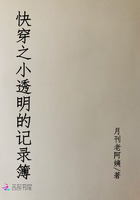He kindled a small fire a little way off, and burned some cedar berries and sweet-smelling grass. Then he fumigated himself thoroughly to dispel the human atmosphere, so that the spirit might not be offended by his approach, for he greatly desired to obtain a sign from her spirit. He had removed his garments and stood up perfectly nude save for the breech- clout. His long hair was unbraided and hung upon his shoulders, veiling the upper half of his splendid body. Thus standing, the lover sang a dirge of his own ******. The words were something like this:
Ah, spirit, thy flight is mysterious!
While the clouds are stirred by our wailing, And our tears fall faster in sorrow--While the cold sweat of night benumbs us,Thou goest alone on thy journey,In the midst of the shining star people! Thou goest alone on thy journey--Thy memory shall be our portion;
Until death we must watch for the spirit!
The eyes of Antelope were closed while he chanted the dirge. He sang it over and over, pausing between the lines, and straining as it were every sense lest he might not catch the rapt whisper of her spirit, but only the distant howls of coyotes answered him. His body be- came cold and numb from sheer exhaustion, and at last his knees bent under him and he sank down upon the ground, still facing the teepee. Unconsciousness overtook him, and in his sleep or trance the voice came:
"Do not mourn for me, my friend! Come into my teepee, and eat of my food."It seemed to Antelope that he faltered for a moment; then he entered the teepee. There was a cheerful fire burning in the center. A basin of broiled buffalo meat was placed oppo- site the couch of Taluta, on the other side of the fire. Its odor was delicious to him, yet he hesitated to eat of it.
"Fear not, kechuwa (my darling)! It will give you strength," said the voice.
The maid was natural as in life. Beautifully attired, she sat up on her bed, and her de- meanor was cheerful and kind.
The young man ate of the food in silence and without looking at the spirit. "Ho, ke- chuwa!" he said to her when returning the dish, according to the custom of his people.
Silently the two sat for some minutes, while the youth gazed into the burning embers.
"Be of good heart," said Taluta, at last, "for you shall meet my twin spirit! She will love you as I do, and you will love her as you love me. This was our covenant before we came into this world."The conception of a "twin spirit" was famil- iar to the Sioux. "Ho," responded the war- rior, with dignity and all seriousness. He felt a great awe for the spirit, and dared not lift his eyes to her face.
"Weep no more, kechuwa, weep no more," she softly added; and the next moment Ante- lope found himself outside the mysterious tee- pee. His limbs were stiff and cold, but he did not feel faint nor hungry.
Having filled his pipe, he held it up to the spirits and then par- took of the smoke; and thus revived, he slowly and reluctantly left the sacred spot.
The main war-party also visited the old camp and saw the solitary teepee grave, but did not linger there. They continued on the trail of the caravan until they reached the new camp- ing ground. They called themselves successful, although they had left several of their number on the field. Their triumph songs indicated this; therefore the people hurried to receive the news and to learn who were the unfor- tunates.
The father of Antelope was foremost among those who ran to meet the war-party. He learned that his son had distinguished himself in the fight, and that his name was not mentioned among the brave dead.
"And where, then, is he?" he asked, with unconcealed anxiety. "He left us three days ago to come in ad- vance," they replied. "But he has not arrived!" exclaimed old Wezee, in much agitation.
He returned to his teepee, where he consoled himself as best he could by smoking the pipe in solitude. He could neither sing praises nor indulge in the death dirge, and none came in either to congratulate or mourn with him.
The sun had disappeared behind the hills, and the old man still sat gazing into the burn- ing embers, when he heard a horse's footfall at the door of his lodge.
"Ho, atay (father)!" came the welcome call.
"Mechinkshe! mechinkshe!" (my son, my son), he replied in unrestrained joy. Old We- zee now stood on the threshold and sang the praise song for his son, ending with a war- whoop such as he had not indulged in since he was quite a young man.
The camp was once more alive with the dances, and the dull thud of the Indian drum was continually in the air. The council had agreed that Antelope was entitled to wear a war-bonnet of eagles' feathers. He was ac- cordingly summoned before the aboriginal par- liament, and from the wise men of the tribe he received his degree of war-bonnet.
It was a public ceremony. The great pipe was held up for him to take the smoke of high honor.
The happiest person present was the father of Antelope; but he himselfremained calm and unmoved throughout the ceremony.
"He is a strange person," was the whisper among a group of youths who were watching the proceedings with envious eyes.
The young man was strangely listless and depressed in spirit. His old grandmother knew why, but none of the others understood. He never joined in the village festivities, while the rest of his family were untiring in the dances, and old Wezee was at the height of his hap- piness.
It was a crisp October morning, and the fam- ily were eating their breakfast of broiled bison meat, when the large drum at the council lodge was struck three times. The old man set down his wooden basin.














